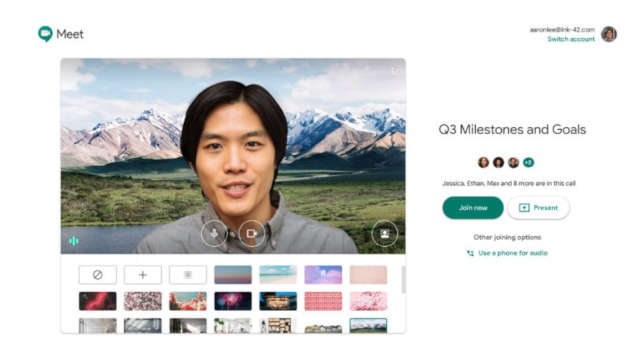Google Reveals New Features for Meet
- By Dian Schaffhauser
- 07/20/20
Google
has unveiled some of its plans
for updates to Meet,
the web conferencing tool that's part of the company's G
Suite for Education.
The basic thrust is to give instructors more control over their
real-time sessions and help them make the classes more engaging.
Among
the updates expected this year are these:
-
Educators
will have more control over who gets in and what they can do once
they're in virtual classes. If a teacher ejects a student from a
meeting, the student won't be able to ask to rejoin ("knock").
If the instructor rejects a knock twice, it won't show up anymore on
his or her interface during the session.
-
Once
a class is over, instructors can end the session for everybody at once.
-
A
default setting will prevent anonymous attendees from joining an
education session, though institutions will be able to opt-in and allow
anonymous participations for designated sessions.
-
Both instructors and students will be able to blur out their backgrounds or
replace them with presets or uploaded images, through the instructor will maintain control to disable that particular functionality.
-
Instructors
will also be able to mute all participants, disable in-meeting chat
and restrict who can present.
-
An
additional setting will require that the moderator join in on the
session before the class begins.
-
Meet
will include a hand-raising function that will prevent class
disruptions until the instructor is ready to take questions or
comments.
-
A
collaborative whiteboard will help participants share their ideas.
-
A
larger tiled view will allow the instructor to show up to 49
participants at one time.
-
And
closed captions will be available in languages besides just English.

Mock-ups of expected functionality in Google Meet, planned for release sometime this year.
Google
has also announced premium features, such as the ability to track
attendance based on who has joined the class; breakout room
functionality; and question-and-answer and polling to encourage
student participation at key moments.
The
company hasn't announced timing for the features, other than to state
that they'll appear in the application this year.
About the Author
Dian Schaffhauser is a former senior contributing editor for 1105 Media's education publications THE Journal, Campus Technology and Spaces4Learning.